Lax laws creating insecure security industry and national threat
Australia’s security industry is under fire, after lax laws have enabled terrorists, neo-Nazis and organised crime cartels to infiltrate it — some with minimal criminal checks.
Crime in Focus
Don't miss out on the headlines from Crime in Focus. Followed categories will be added to My News.
Exclusive: Terrorists, neo-Nazis and organised crime groups could end up “protecting” our critical infrastructure thanks to legal loopholes allowing firms to import potential extremists or criminals to work as security guards.
The warning from the NSW Police Security Licensing & Enforcement Directorate (SLED) comes as the nation’s security industry comes under investigation in Victoria for lax vetting and training as exposed during its COVID-19 hotel traveller quarantine program.
It also comes as News Corp Australia can reveal the NSW Government has been forced to dump two of its eight security provider contracts on its quarantine program after finding similar subcontracting issues that furthered the coronavirus crisis in Victoria.
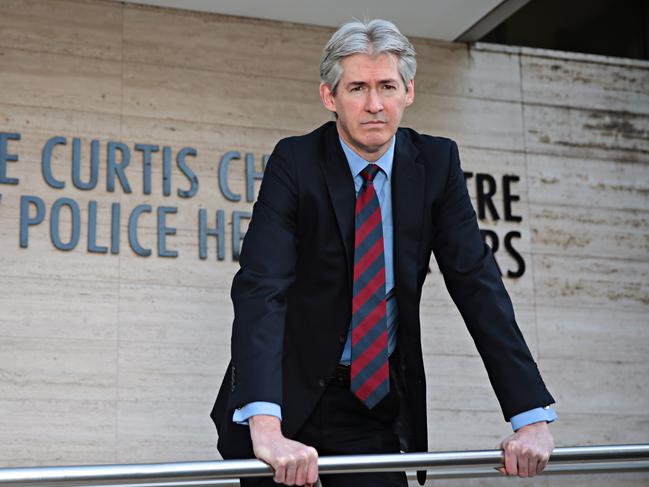
It can also be revealed:
Federal authorities have intelligence that some neo-Nazi and right wing groups nationally are looking to join security companies to access training and weapons;
• In NSW alone in the first six months of this year 249 security applicants were rejected including 23 people deemed not in the public’s interest or safety with another 250 licence revocations with 68 no longer deemed fit and 95 being found guilty of crime
• Foreign nationals from India, Pakistan and Iraqi on visas have been handed licences even though some don’t speak any English;
* NSW Supreme Court ordered a security licence be granted to a Queensland woman with 20 known aliases and multiple outstanding warrants for fraud because it was her right under interstate mutual recognition law with her charges not finalised;
* A spike in security licence applicants in NSW from South Australia and WA were “organised” and signed by the same JP.
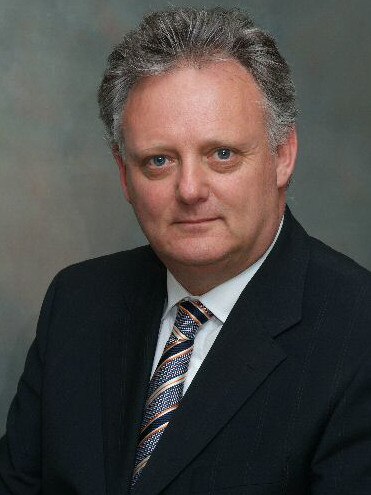
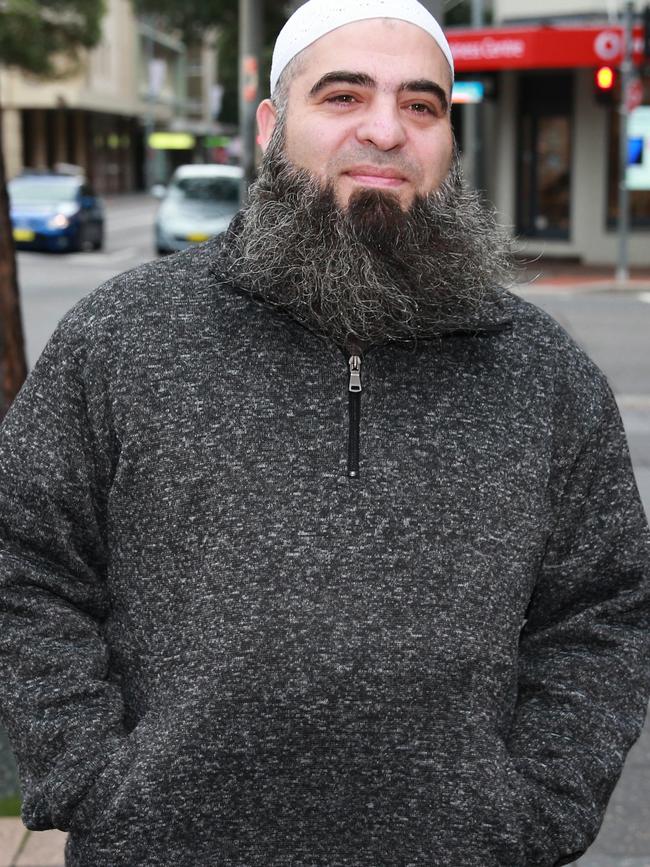
MORE NEWS
What plan to save GPs means for you
The women Biden might pick as VP
Bunnings joins Woolies mask stance as Vic COVID toll rises
An as yet to be released security industry review has found nationally a “culture of noncompliance and endemic failure to apply workplace laws” to create a public health risk including exploitation and “modern slavery” and profit-based “pacts of dishonesty” between employers and exploited employees.
The security industry is regulated on a state and territory basis with little to no national consistency that potentially allows questioned characters with security licences in one state able to get a license to operate in another.
A special report Safety in Numbers from the Australian Strategic Policy Institute (ASPI) has already called for the establishment of a federal Security Industry Authority responsible to the Home Affairs minister.
ASPI senior fellow and one of the authors of the report Dr Anthony Bergin said the authority should control, record, monitor and enforce the licensing of Australia’s private security industry.
But an investigation by News Corp has found a myriad of anomalies in the industry nationally, the largest threat being the ability for states and territories, with the exception of NSW, to hire those on student or working holiday visas, with minimal criminal check verifications.
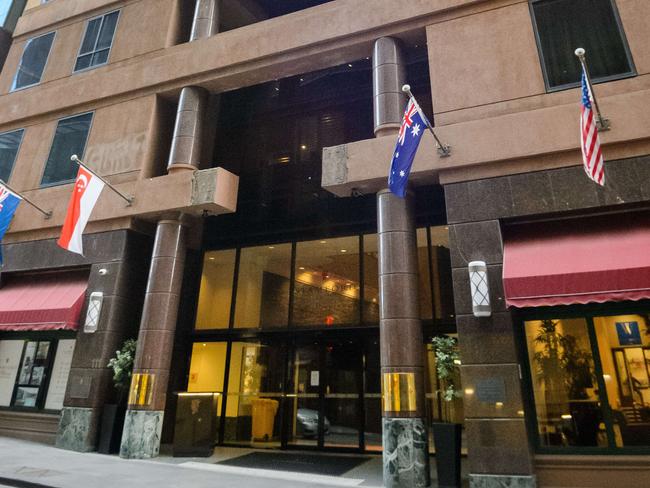
And it’s the same questionable workforce that is able to move about the country unchecked with mutual recognition laws forcing authorities to license someone who may have been given a licence in one state to be given a license to work in another.
It has also been learned authorities are uncovering and shutting training colleges offering bogus minimal “training” including providing answers to applicants, some of whom can’t speak English, only to see those operators again form another school or security firm, in another State.
SLED has repeatedly warned federal authorities and state counterparts of the risks posed by potential importing foreign labour and potential industry recruiting of extremists.
It cites Hamdi Alqudsi, a security instructor who would later be jailed in 2016 for helping recruit and export Australians to join ISIS, Jabhat Al-Nusra and Ahrar Al-Sham in Syria.
SLED director Cameron Smith confirmed there were some serious concerns in the industry around subcontracting, dodgy training colleges but also movement of a work force between states.
He said student and holiday visa workers would not meet eligibility requirements to operate as security in NSW but were eligible in other states and under mutual recognition laws were automatically getting licences in NSW too.
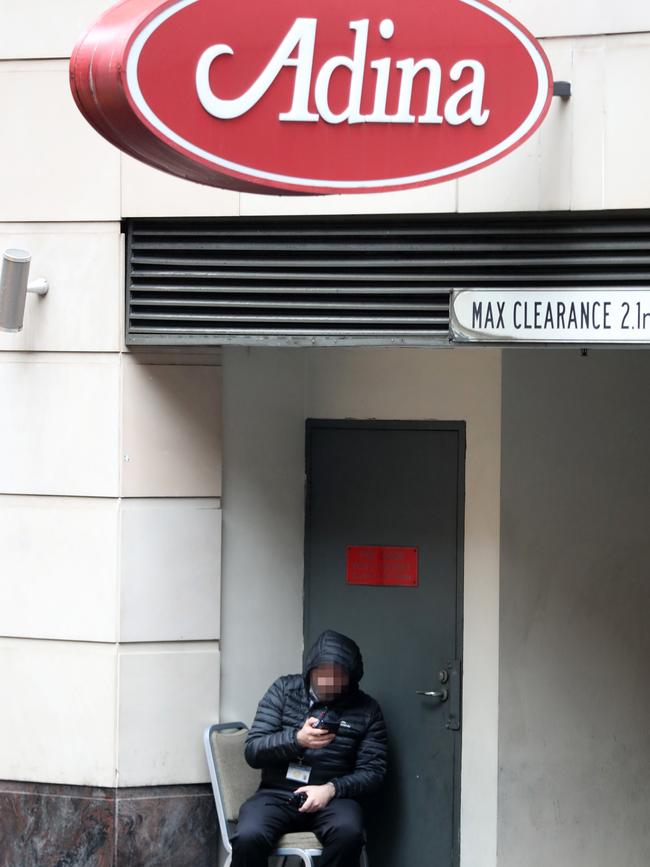
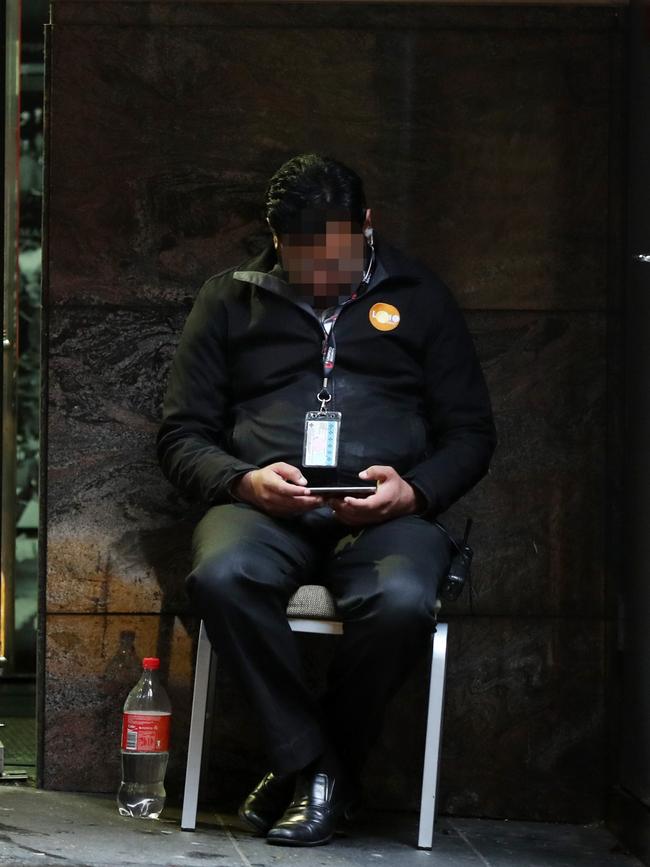
He said importing a workforce with extremist views or criminal connections were a concern.
“We can’t finger print them we can’t criminal record check them we can’t impose any regulatory controls on them, under mutual recognition it’s basically ‘here you go’; it’s a big issue and has been for a while,” he said yesterday.
“Training is important but the biggest thing is probity, the positions of trust these people hold its essential that we know their backgrounds that they are clean and to have a situation where we don’t allow people into the industry where their backgrounds can’t be checked is a no-brainer for me but we are the only jurisdiction that have those limitations.”
He said terrorism did not necessarily require complex plotting.
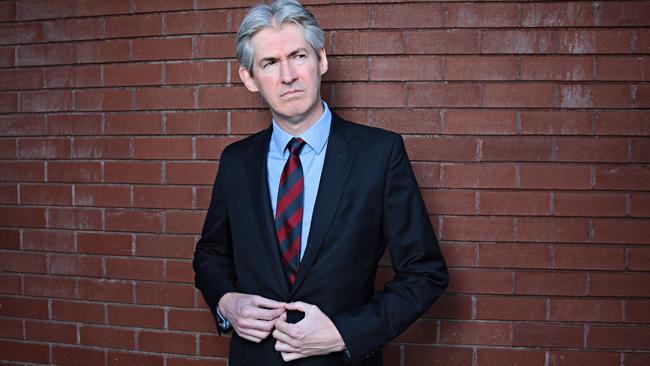
“It wouldn’t require anywhere near that planning for a company to have an important security contract and then bring people into the country via immigration agents on student visas specially with the networks some of these dodgy training providers playing ball, and staff that contract and say ‘tomorrows go day’.”
Victorian authorities confirmed they are probing their security industry in the wake of COVID-19 crisis and the hiring of fake guards as well as evidence bikie gangs are attempting to expand their influence into the industry to control venues and movement of drugs in pubs and clubs. Queensland security licensing authority the Office of Fair Trading has done 145 spot check audits this year with 18 referred to police investigation and 49 licences cancelled. They confirmed there was no impediment to foreign students joining the industry but do check they are on a correct visa.
Security industry peak body ASIAL welcomed an inquiry, a spokesman saying security guards had a critical frontline function and the industry had been calling for a national standard and uniform consistent laws and scrutiny since 2004.
Originally published as Lax laws creating insecure security industry and national threat
